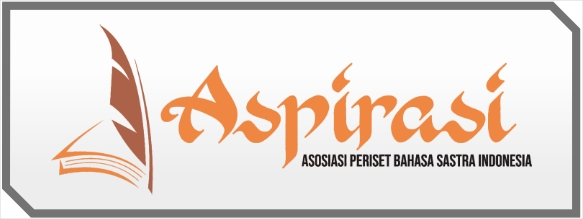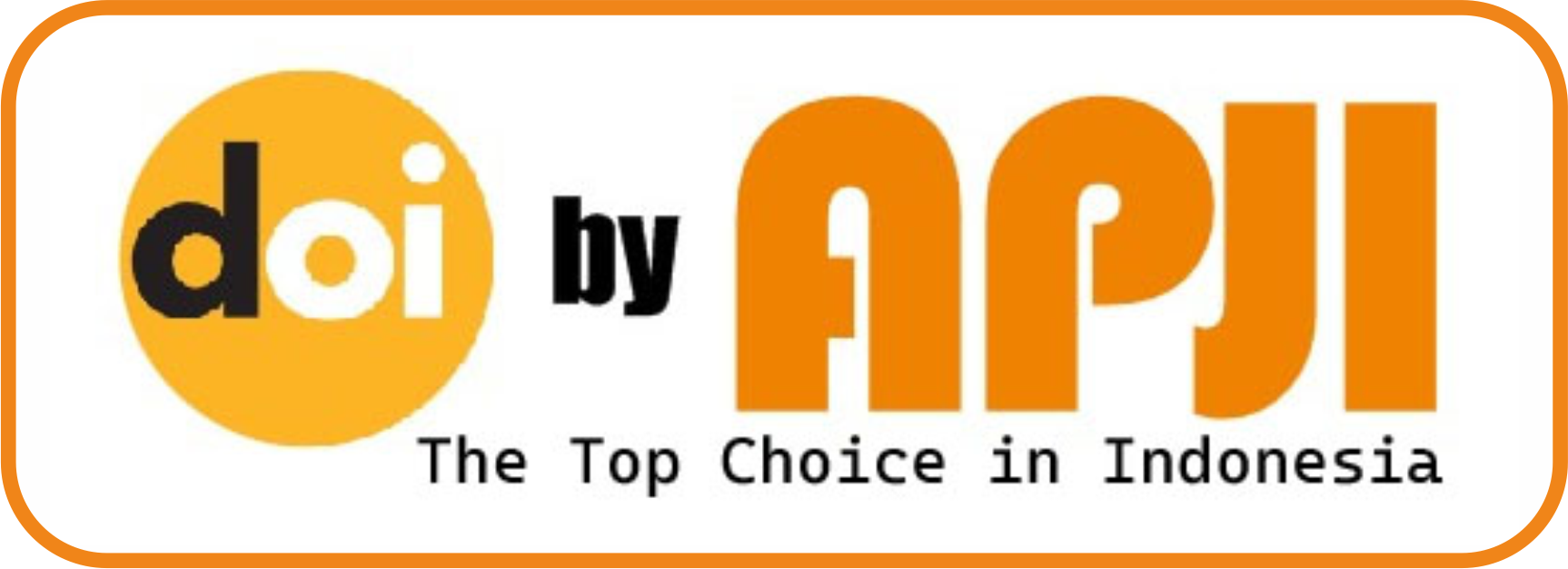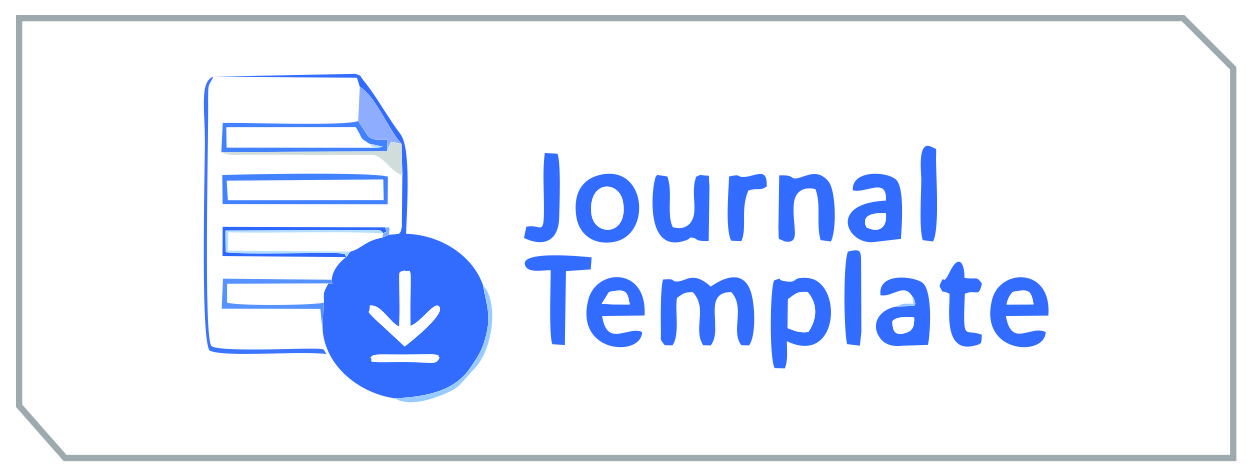Meta-Analysis Study: The Effectiveness of Problem Solving Learning in Science Learning in Indonesia
DOI:
https://doi.org/10.55606/ijel.v1i3.36Keywords:
Learning, Problem Solving, Science LearningAbstract
21st century learning has had a huge impact on students and teachers. Students must be guided to be able to think critically to overcome various kinds of problems that occur. Furthermore, teachers as education play an important role in honing problem solving skills in their students. The problem solving learning model is a learning model that directs students to solve problems in the learning process. In addition, the problem solving learning model is not fully capable of being applied by science teachers. Although, in the 2013 curriculum in Indonesia a teacher is required to be able to apply the problem solving model in conducting science learning. Not only that, the limited experience of teachers in applying variations of these learning models is still the main obstacle in learning science. So, teachers in Indonesia must have extensive experience in adopting problem solving learning models. This study aims to determine the effectiveness of the problem solving learning model in learning science in Indonesia. This research is a kind of meta-analysis research. The research sample came from analyzing national and international journals published from 2010-2022. The selection of data used as samples was carried out very strictly and thoroughly. Searching for this research sample through Google Scholar, Eric, Hindawi, Sage, Springer, Proquest, IEEE, DOAJ, and Wiley. The sample selection technique is a purposive sampling technique. In this technique, the data that is used as a sample must have a relationship with the research variable. In searching for sample keywords, namely problem solving learning models in learning science (Biology, Chemistry and Physics) in various schools in Indonesia. Data analysis is descriptive statistical analysis with the OpenMEE application. Data analysis was performed by calculating effect size, standard deviation (SD), average value (mean), and N-gain. The results of this study concluded that the application of the problem solving learning model was very effective in learning science in Indonesia. This learning model is able to increase student learning outcomes with an average score of 86 students in the experimental class and 65.5 in the control class, the effect size value is 1.39 in the high category and N-Gain is 0.55.
References
Agustini. D. Subagia, I. W. S. I. N. (2013). Pengaruh Model Pembelajaran Sains Teknologi Masyarakat (STM) Terhadap Penguasaan Materi dan Keterampilan Pemecahan Mmasalah Siswa pada Mata Pelajaran IPA di MTs. Negeri Patas. e-Journal Program Pascasarjana Universitas Pendidikan Ganesha. E-Journal Program Pascasarjana Universitas Pendidikan Ganesha, 3(2).
Ali, R., Hukamdad, D., Akhter, A., & Khan, A. (2010). Effect of Using Problem Solving Method in Teaching Mathematics on the Achievement of Mathematics Students. Asian Social Science, 6(2), 67–72. https://doi.org/10.5539/ass.v6n2p67
Anugraheni, I. (2019). Pengaruh Pembelajaran Problem Solving Model Polya Terhadap Kemampuan Memecahkan Masalah Matematika Mahasiswa. Jurnal Pendidikan (Teori Dan Praktik), 4(1), 1. https://doi.org/10.26740/jp.v4n1.p1-6
Apra Santosa, T., Razak, A., Anhar, A., & Sumarmin, R. (2021). Efektivitas Model Blended Learning Terhadap Hasil Belajar Mahasiswa Pada Mata Kuliah Zoologi di Era Covid-19. Biodik, 7(01), 77–83. https://doi.org/10.22437/bio.v7i01.11708
Apra, T., 1, S., Razak, A., Arsih, F., Sepriyani, E. M., & Hernaya, N. (2021). Meta-Analysis: Science Learning Based on Local Wisdom Against Preserving School Environments During the Covid-19 Pandemic. Journal of Biology Education, 10(2), 244–251. http://journal.unnes.ac.id/sju/index.php/ujbe
Argaw, A. S., Haile, B. B., Ayalew, B. T., & Kuma, S. G. (2017). The effect of problem based learning (PBL) instruction on students’ motivation and problem solving skills of physics. Eurasia Journal of Mathematics, Science and Technology Education, 13(3), 857–871. https://doi.org/10.12973/eurasia.2017.00647a
Bahar, M., & Aksüt, P. (2020). Investigation on the effects of activity-based science teaching practices in the acquisition of problem solving skills for 5-6 year old pre-school children. Journal of Turkish Science Education, 17(1), 22–39. https://doi.org/10.36681/tused.2020.11
CAKIROGLU, U., MUMCU, S., ATABAY, M., & AYDIN, M. (2022). Understanding problem-solving processes of preschool children in CS unplugged activities. International Journal of Computer Science Education in Schools, 5(3), 1–17. https://doi.org/10.21585/ijcses.v5i3.133
Cheng, S. C., She, H. C., & Huang, L. Y. (2018). The impact of problem-solving instruction on middle school students’ physical science learning: Interplays of knowledge, reasoning, and problem solving. Eurasia Journal of Mathematics, Science and Technology Education, 14(3), 731–743. https://doi.org/10.12973/ejmste/80902
Daryanti, S., Sakti, I., & Hamdani, D. (2019). Pengaruh Pembelajaran Model Problem Solving Berorientasi Higher Order Thinking Skills Terhadap Hasil Belajar Fisika Dan Kemampuan Pemecahan Masalah. Jurnal Kumparan Fisika, 2(2), 65–72. https://doi.org/10.33369/jkf.2.2.65-72
Dasar, I. P. A. S. (2018). Jurnal Riset Pendidikan Dasar CROSS CROSSES MEDIA ON THE ACTIVITIES AND LEARNING OUTCOMES OF. Jurnal Riset Pendidikan Dasar, 01(April), 101–106.
Fahmi, Fajeriadi, H., Irhasyuarna, Y., Suryajaya, & Abdullah. (2021). The practicality of natural science learning devices on the concept of environmental pollution with problem-solving learning models. Journal of Physics: Conference Series, 2104(1). https://doi.org/10.1088/1742-6596/2104/1/012025
Faridatul Rofiqoh , I Ketut Mahardika, Y. (2015). Pengaruh Model Pembelajaran Kooperatif Tipe Numbered Heads Together (Nht) Disertai Media Monopoli Games Terintegrasi Pendekatan Problem Solving Pada Pembelajaran Fisika Di Sma. Jurnal Pembelajaran Fisika, 4(3), 198–203. http://jurnal.unej.ac.id/index.php/JPF/article/view/2637
Ferry, D., Santosa, T., & Kamil, D. (2020). Pengetahuan Mahasiswa Institut Agama Islam Negeri Kerinci Tentang Teori Asal Usul Manusia. BIOEDUCA : Journal of Biology Education, 1(1), 11. https://doi.org/10.21580/bioeduca.v1i1.4945
Fitriyah, N., Hariani, S. A., & Fikri, K. (2015). Pengaruh Model Pembelajaran Creative Problem Solving Dengan Mind Mapping Terhadap Kemampuan Berpikir Kreatif Dan Hasil Belajar Ipa Biologi. Jurnal Edukasi, 11(2), 44–50. http://repository.unej.ac.id/bitstream/handle/123456789/65672/Ainul Latifah-101810401034.pdf?sequence=1
Fitriyanto, F., & Nurhayati, S. (2012). Penerapan Model Pembelajaran Problem Solving Pada Materi Larutan Penyangga Dan Hidrolisis. Chemistry in Education, 1(1), 40–44. http://journal.unnes.ac.id/sju/index.php/chemined
Harefa, D. (2020). Pengaruh Model Pembelajaran Problem Solving Terhadap Hasil Belajar IPA Fisika Siswa Kelas IX SMP Negeri 1 Luahagundre Maniamolo Tahun Pembelajaran …. Jurnal Education And Development, 8(1), 231–234. http://journal.ipts.ac.id/index.php/ED/article/view/1540
Hestiana, H., & Rosana, D. (2020). The Effect of Problem Based Learning Based Sosio-Scientific Issues on Scientific Literacy and Problem-Solving Skills of Junior High School Students. Journal of Science Education Research, 4(1), 15–21. https://doi.org/10.21831/jser.v4i1.34234
Ichsan, Suhaimi, Amalia, K. N., Santosa, T. A., & Yulianti, S. (2022). Pengaruh Model Pembelajaran Problem Based Learning Berbaisis TPACK Terhadap Ketrampilan Literasi Sains Dalam Pembelajaran IPA Siswa Tingkat SD Sampai SMA: Sebuah Meta-Analisis. Jurnal Pendidikan Dan Konseling, 4(5), 2173–2181.
Jannah, S. N., Doyan, A., & Harjono, A. (2017). Pengaruh Model Pembelajaran Kooperatif dengan Pendekatan Problem Posing Ditinjau dari Pengetahuan Awal Terhadap Kemampuan Pemecahan Masalah Fisika Siswa SMK. Jurnal Pendidikan Fisika Dan Teknologi, 1(4), 257–264. https://doi.org/10.29303/jpft.v1i4.268
Karantzas, G. C., Avery, M. R., MacFarlane, S., Mussap, A., Tooley, G., Hazelwood, Z., & Fitness, J. (2013). Enhancing critical analysis and problem-solving skills in undergraduate psychology: An evaluation of a collaborative learning and problem-based learning approach. Australian Journal of Psychology, 65(1), 38–45. https://doi.org/10.1111/ajpy.12009
Kaymakcı, G., & Can, Ş. (2021). Investigation of the Effects of Some Variables on Middle School Students’ Problem-Solving Skills, Science Process Skills and Learning Styles. Educational Policy Analysis and Strategic Research, 16(1), 394–426. https://doi.org/10.29329/epasr.2020.334.21
Kiliç, İ. (2022). A qualitative examination of parents’ views on the applicability of the project-based learning approach in science courses. African Educational Research Journal, 10(2), 190–199. https://doi.org/10.30918/aerj.102.22.031
Kirtikar, R. (2013). A Problem-Solving Approach for Science Learning. New Perspectives in Science Education 2nd Edition.
Lazić, B. D., Knežević, J. B., & Maričić, S. M. (2021). The influence of project-based learning on student achievement in elementary mathematics education. South African Journal of Education, 41(3), 1–10. https://doi.org/10.15700/saje.v41n3a1909
Mardianis, M. (2018). Upaya Meningkatkan Prestasi Belajar Siswa Dengan Penerapan Metode Pembelajaran Problem Solving Terhadap Pembelajaran Ipa Siswa Kelas Vi Sd Negeri 020 Tembilahan Hilir. JURNAL PAJAR (Pendidikan Dan Pengajaran), 2(1), 11. https://doi.org/10.33578/pjr.v2i1.4871
Muzanni, A., & Muhyadi, M. (2016). Pengembangan Perangkat Pembelajaran Problem Solving Mata Pelajaran Ipa Terhadap Hasil Belajar Kognitif Siswa Sd. Jurnal Prima Edukasia, 4(1), 1. https://doi.org/10.21831/jpe.v4i1.7746
Nurhamidah, U. (2018). Pengaruh Model Creative Problem Solving (Cps) Terhadap Keterampilan Berpikir Kreatif Siswa Dalam Pemecahan Masalah Pada Mata Pelajaran Ipa Kelas Iv …. Jurnal Penelitian Pendidikan Guru …, 6(6), 1009–1019. https://jurnalmahasiswa.unesa.ac.id/index.php/39/article/view/23923https://jurnalmahasiswa.unesa.ac.id/index.php/39/article/viewFile/23923/21864
Oktarina, K., Suhaimi, S., Santosa, T. A., & ... (2021). Meta-Analysis: The Effectiveness of Using Blended Learning on Multiple Intelligences and Student Character Education During the Covid-19 Period. … Journal of Education …, 4(3), 184–192. http://journal.ummat.ac.id/index.php/IJECA/article/view/5505https://journal.ummat.ac.id/index.php/IJECA/article/download/5505/pdf
Pradipta, S. G., Mahfud, H., & Atmojo, I. R. W. (2014). Application of DLPS (Double Loop Problem Solving) Learning Model to Improve The Understanding of The Concept of The Effect of Physical Environment on Land. Journal Systems, 4(10). https://jurnal.fkip.uns.ac.id/index.php/pgsdsolo/article/view/9178/7158
Purwanti, S., & Manurung, S. (2015). The Analyze Effects Of Learning Model Problem Solving Scientific Attitude And Learning Outcomes Of Physics. Jurnal Pendidikan Fisika, 4(1), 57–62.
Razak, A., Santosa, T. A., Lufri, & Zulyusri. (2021). Meta-Analisis: Pengaruh HOTS (Higher Order Thinking Skill) terhadap Kemampuan Literasi Sains dan Lesson Study Siswa pada Materi Ekologi dan Lingkungan pada Masa Pandemi Covid-19. Bioedusiana: Jurnal Pendidikan Biologi, 6(1), 79–87.
Rodríguez-Peñarroja, M. (2022). Integrating Project-Based Learning, Taskbased Language Teaching Approach and Youtube in the Esp Class: a Study on Students’ Motivation. Teaching English with Technology, 22(1), 62–81.
Sadiqin, I. K., Santoso, U. T., & Sholahuddin, A. (2017). Pemahaman konsep IPA siswa SMP melalui pembelajaran problem solving pada topik perubahan benda-benda di sekitar kita. Jurnal Inovasi Pendidikan IPA, 3(1), 52. https://doi.org/10.21831/jipi.v3i1.12554
Santosa, T. A., & S., E. M. (2020). Analisis Masalah Pendidikan Biologi Pada Sekolah Menengah Pertama Di Era Pandemi Covid -19. Jurnal Review Pendidikan Dan Pengajaran, 3(2), 273–278. https://doi.org/10.31004/jrpp.v3i2.1278
Santosa, T. A., & YuliantI, S. (2020). Pengaruh Pemberian Kuis Terhadap Peningkatan Motivasi Belajar Biologi Siswa Di Sma Negeri 7 Kerinci. Edusaintek : Jurnal Pendidikan, Sains Dan Teknologi, 7(2), 1–18. https://doi.org/10.47668/edusaintek.v7i2.58
Sarah, S., Lufri, L., & Sumarmin, R. (2018). Pengaruh Model Pembelajaran Problem Solving Terhadap Kompetensi Belajar IPA Peserta Didik Kelas VIII SMP Negeri 13 Padang. Jurnal Eksakta Pendidikan (Jep), 2(1), 25. https://doi.org/10.24036/jep/vol2-iss1/88
Sari, Y. I., Sumarmi, Utomo, D. H., & Astina, I. K. (2021). The Effect of Problem Based Learning on Problem Solving and Scientific Writing Skills. International Journal of Instruction, 14(2), 11–26. https://doi.org/10.29333/iji.2021.1422a
Shin, S., & Park, P. (2014). A Study on the Effect affecting Problem Solving Ability of Primary Students through the Scratch Programming. 59(Education), 117–120. https://doi.org/10.14257/astl.2014.59.27
Suhaimi, Santosa, T. A., & Aprilisia, S. (2022). Analisis Pendekatan Saintifik Dalam Pembelajaran IPA Selama Pandemi Covid-19 di Sekolah Dasar. Jurnal Didika: Wahana Ilmiah Pendidikan Dasar, 8(1), 92–101.
Suhendri, H. (2015). Pengaruh Metode Pembelajaran Problem Solving terhadap Hasil Belajar Matematika Ditinjau dari Kemandirian Belajar. Formatif: Jurnal Ilmiah Pendidikan MIPA, 3(2), 105–114. https://doi.org/10.30998/formatif.v3i2.117
Supardi, Imam, K., & Putri, Indraspuri, R. (2011). Pengaruh Penggunaan Artikel Kimia Dari Internet Pada Model Pembelajaran Creative Problem Solving Terhadap Hasil Belajar Kimia Siswa Sma. Jurnal Inovasi Pendidikan Kimia, 4(1), 574–581.
Yanti, N. L. M. S. M. (2017). Pengaruh Model Pembelajaran Creative Problem Solving Berbasis Educative Games Terhadap Kemampuan Berpikir Kritis dan Hasil Belajar Ipa Kelas IV Di Gugus IV Kecamatan Kuta, Kabupaten Badung. Jurnal Ilmiah Pendidikan Dan Pembelajaran, 1(2), 90–99. https://ejournal.undiksha.ac.id
Yayat Suharyat et al. (2022). Meta-Analisis Penerapan Model Pembelajaran Problem Based Learning Untuk Meningkatkan Ketrampilan Abad-21 Siswa Dalam Pembelajaran IPA Universitas Pahlawan Tuanku Tambusai. Jurnal Pendidikan Dan Konseling, 4(5), 5081–5088.
Yılmaz, S. S., Yıldırım, A., & İlhan, N. (2022). Effects of the Context-Based Learning Approach on the Teaching of Chemical Changes Unit. Journal of Turkish Science Education, 19(1), 218–236. https://doi.org/10.36681/tused.2022.119
Yuliati, Y., & Lestari, I. (2019). Penerapan Model Creative Problem Solving Untuk Meningkatkan Hasil Belajar Siswa Pada Pembelajaran Ilmu Pengetahuan Alam Di Sekolah Dasar. Jurnal Cakrawala Pendas, 5(1), 32–39. https://doi.org/10.31949/jcp.v5i1.1200
Yusuf, M., Witro, D., Diana, R., Santosa, T. A., Alfikri, A. ‘Alwiyah, & Jalwis, J. (2020). Digital Parenting to Children Using The Internet. Pedagogik Journal of Islamic Elementary School, 3(1), 1–14. https://doi.org/10.24256/pijies.v3i1.1277



















